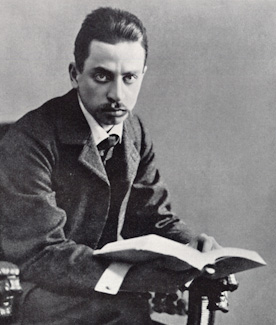Prayer by Carol Ann Duffy
I love Carol Ann Duffy's "Prayer," and the poem is even more remarkable when you consider how strictly she's stayed true to the Shakespearean sonnet form--and how well she's hidden it. The last line, which I'm told is familiar to Brits, is somewhat lost in translation. It's part of a nightly radio maritime weather forecast.
Prayer
Some days, although we cannot pray, a prayer
utters itself. So, a woman will lift
her head from the sieve of her hands and stare
at the minims1 sung by a tree, a sudden gift.
Some nights, although we are faithless, the truth
enters our hearts, that small familiar pain;
then a man will stand stock-still, hearing his youth
in the distant Latin chanting of a train.
Pray for us now. Grade I piano scales
console the lodger looking out across
a Midlands town. Then dusk, and someone calls
a child's name as though they named their loss.
Darkness outside. Inside, the radio's prayer -
Rockall. Malin. Dogger. Finisterre.
 Carol Ann Duffy was born in in 1955 in Glasgow, Scotland. She was recently named the first female (and the first Scottish) poet laureate in British history.
Carol Ann Duffy was born in in 1955 in Glasgow, Scotland. She was recently named the first female (and the first Scottish) poet laureate in British history.
Prayer
Some days, although we cannot pray, a prayer
utters itself. So, a woman will lift
her head from the sieve of her hands and stare
at the minims1 sung by a tree, a sudden gift.
Some nights, although we are faithless, the truth
enters our hearts, that small familiar pain;
then a man will stand stock-still, hearing his youth
in the distant Latin chanting of a train.
Pray for us now. Grade I piano scales
console the lodger looking out across
a Midlands town. Then dusk, and someone calls
a child's name as though they named their loss.
Darkness outside. Inside, the radio's prayer -
Rockall. Malin. Dogger. Finisterre.






